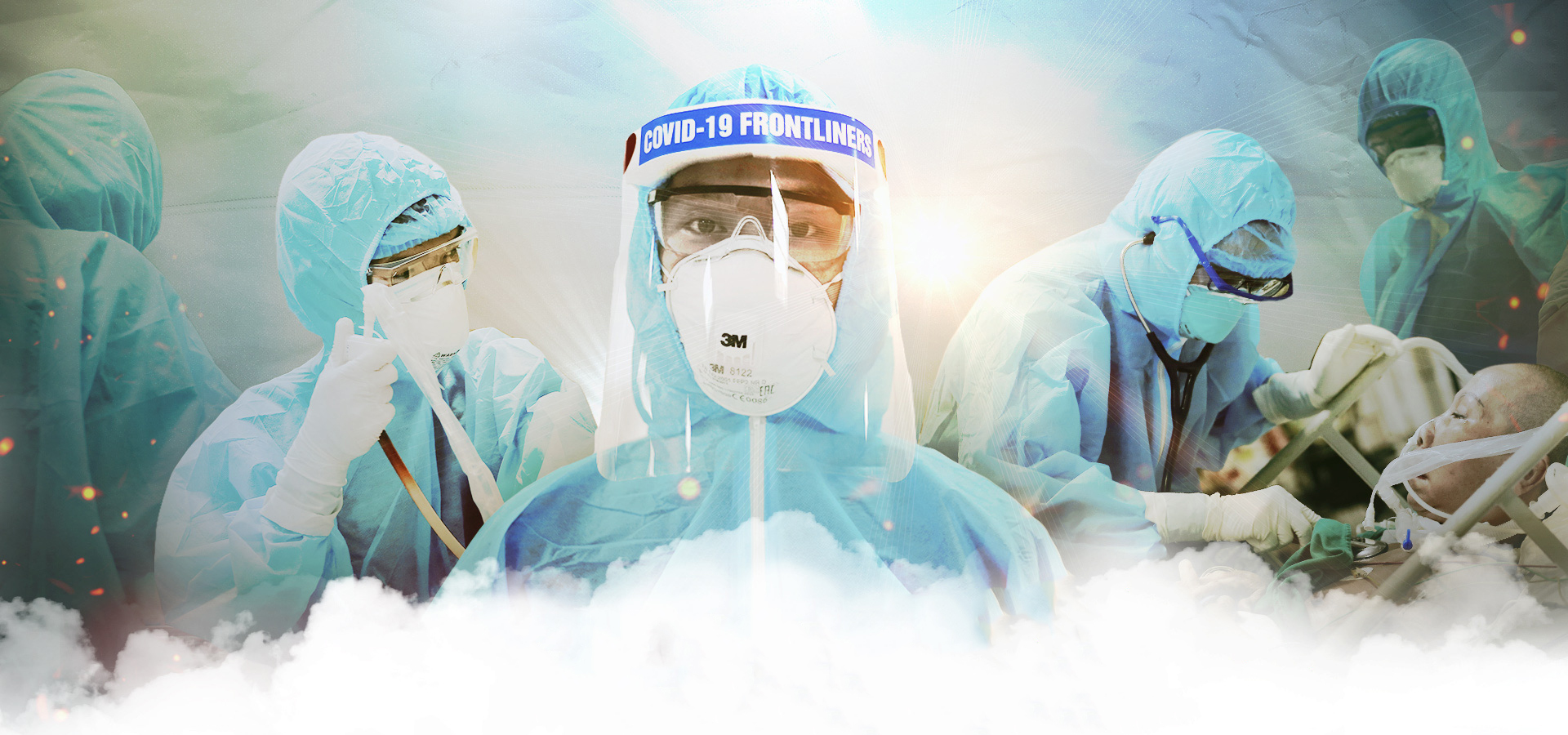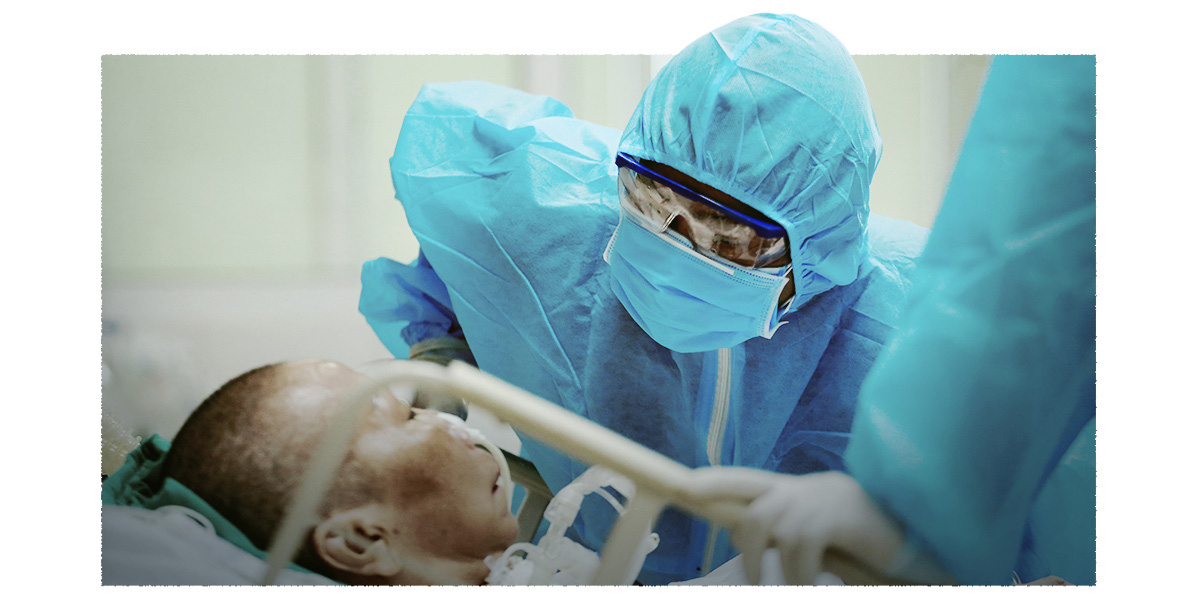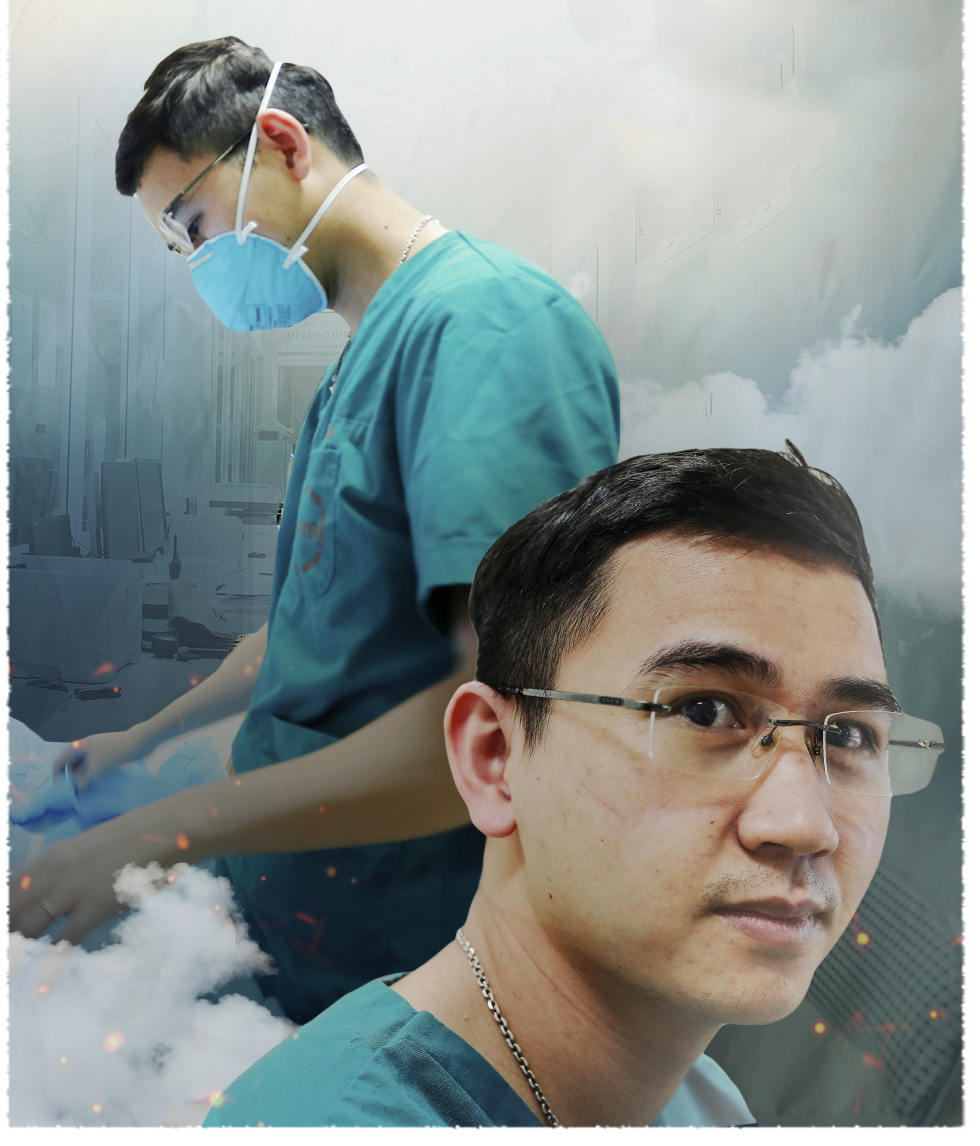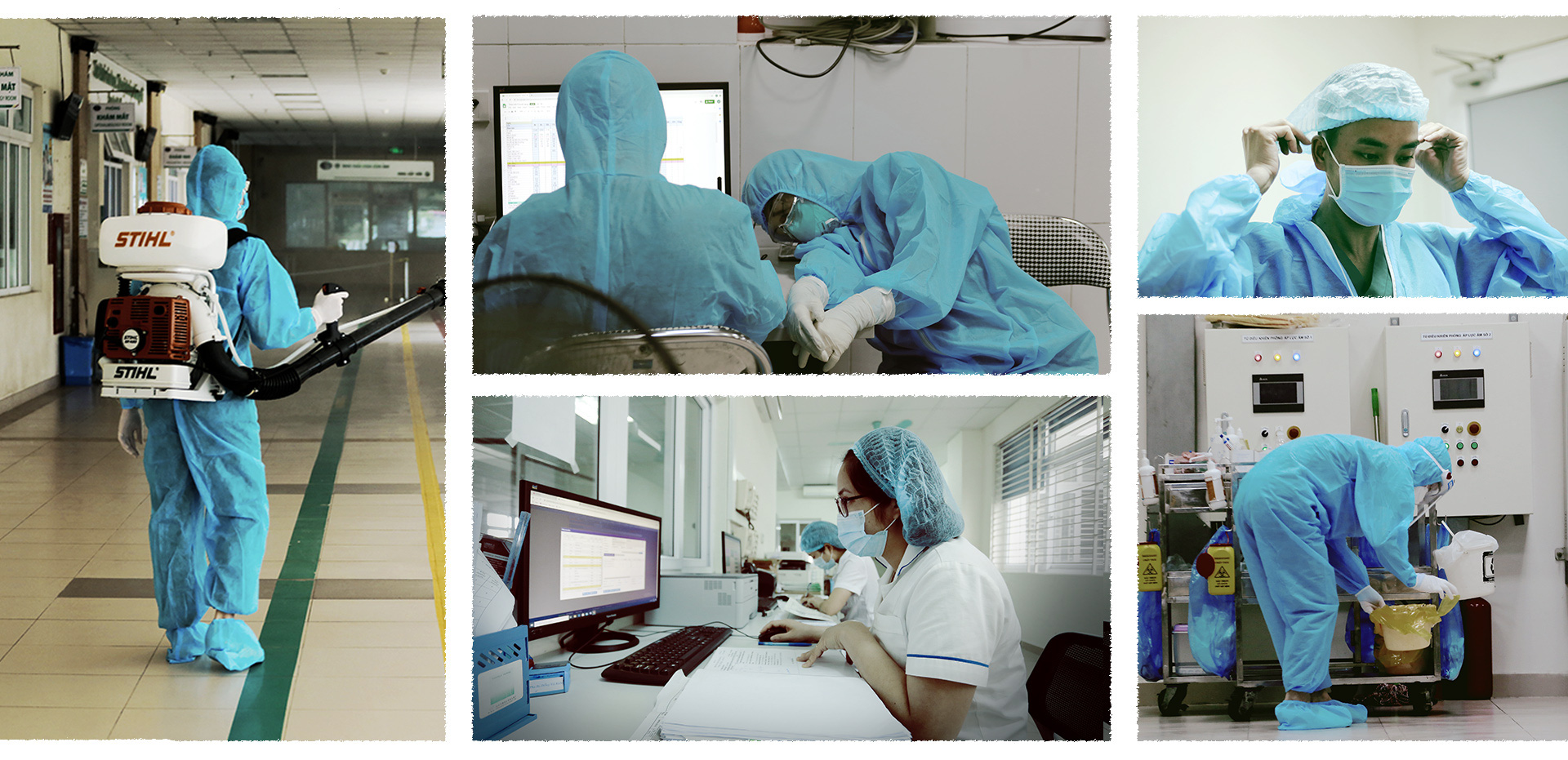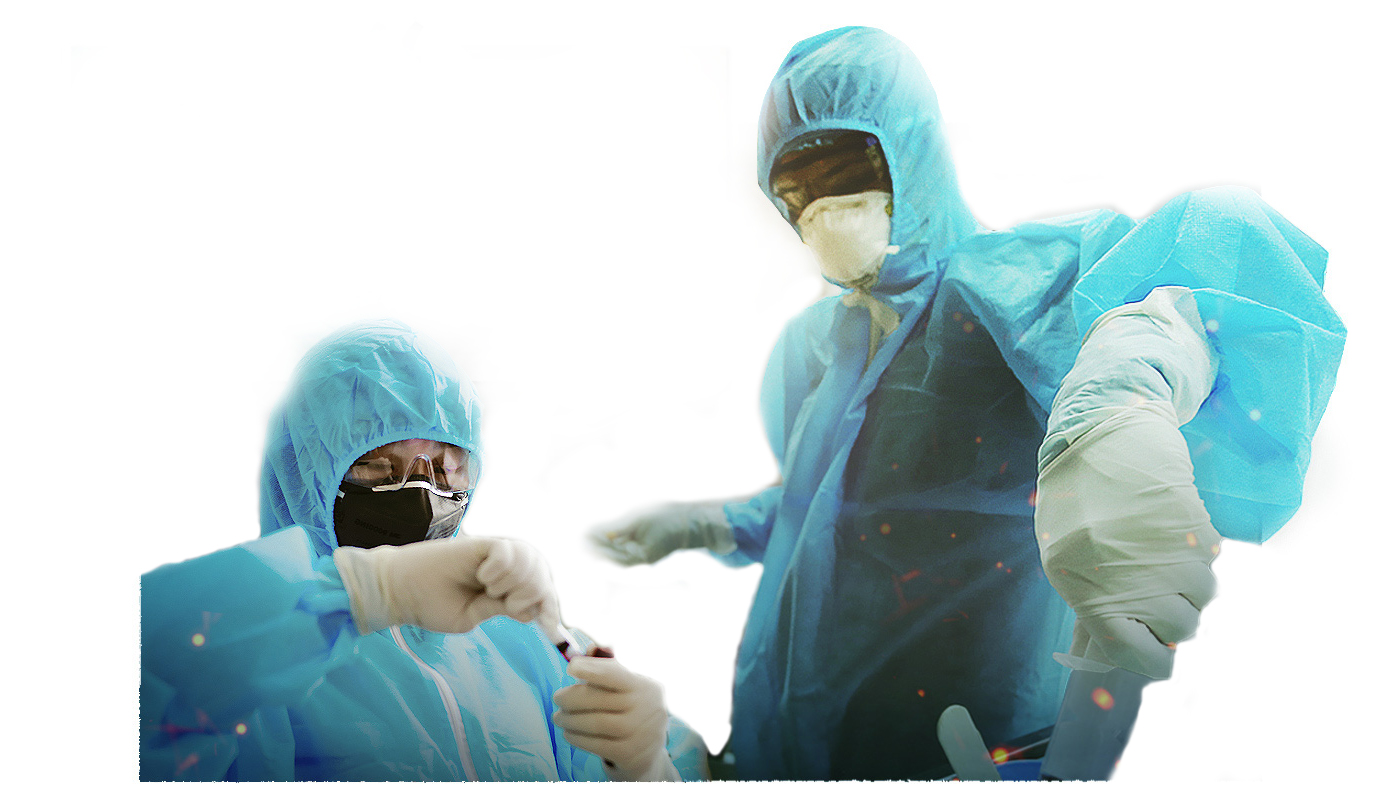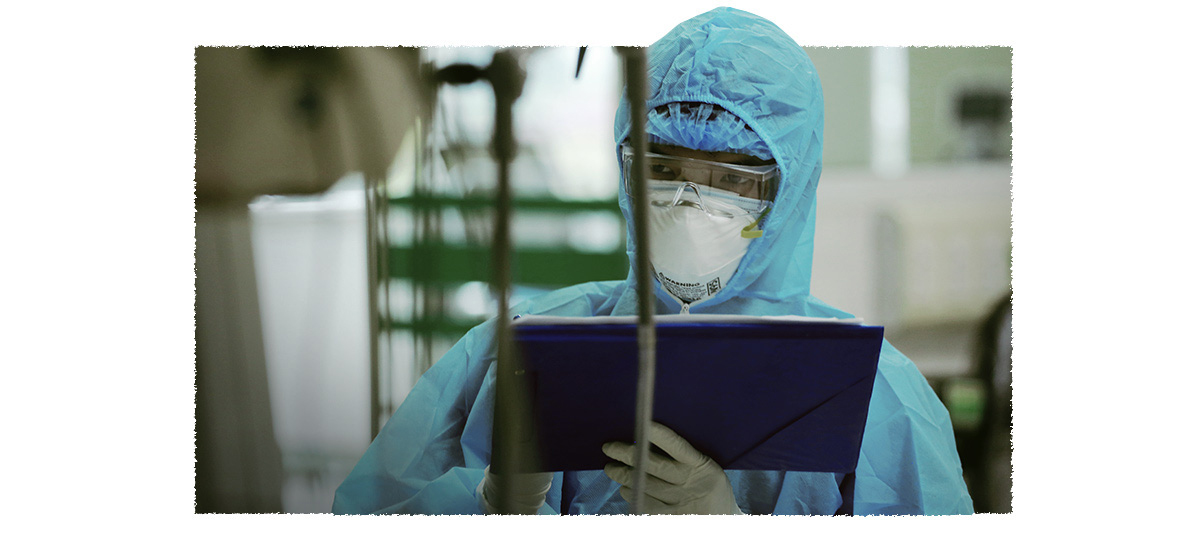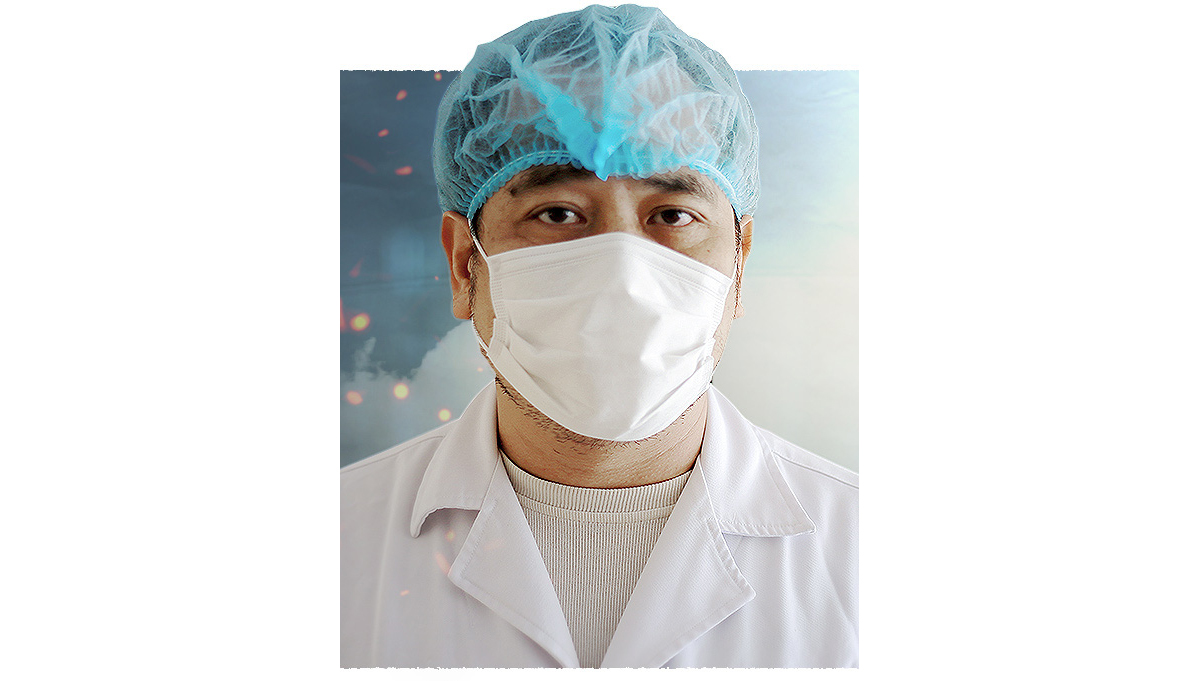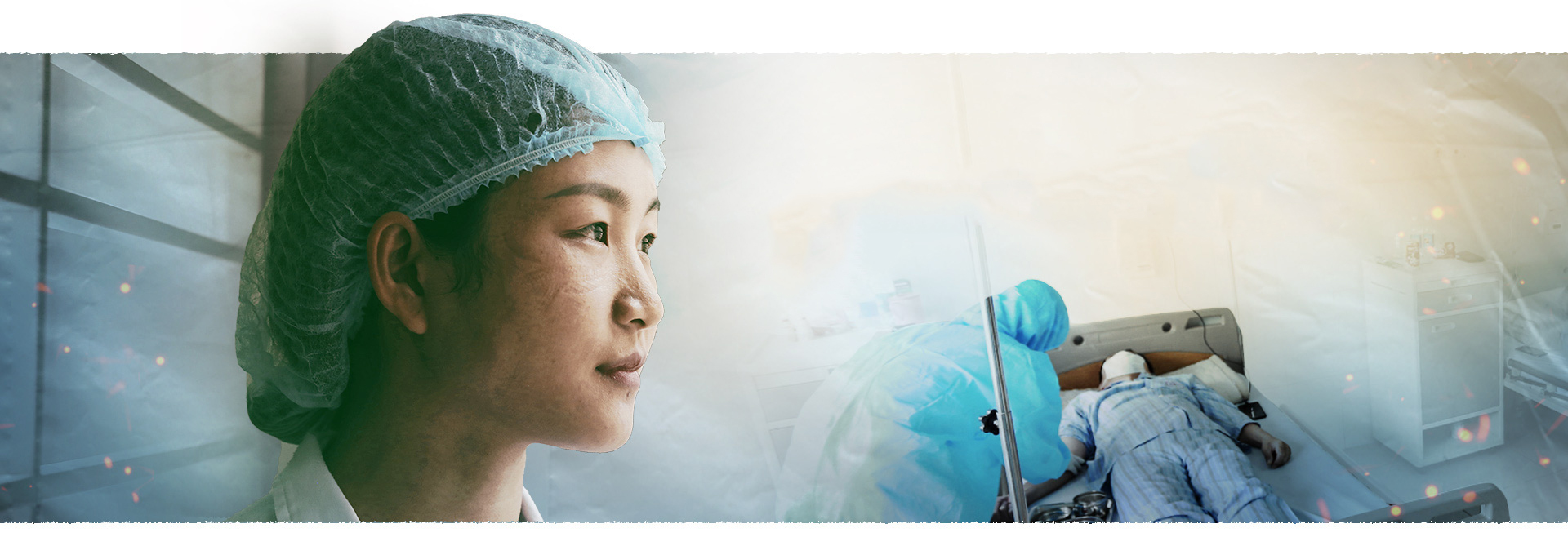In Vietnam, committed first responders exert themselves to save others from the harrowing effects of novel coronavirus disease (COVID-19). During this slight lull in the fight against the pandemic, they were able to sit down with Tuoi Tre (Youth) newspaper and relate some of the bizarre and uplifting stories from the front line.
During their lengthy struggle, some miracles did occur:
Patient No. 161, the oldest recorded COVID-19 case in Vietnam at the age of 88, was listed as one of the six most complicated infections in the country.
Hospitalized with hemiplegia and circulation distress to the point that ventilator intervention was required, the patient successfully pulled through critical conditions and recovered on May 5, thanks to the direct consultation from the Ministry of Health’s professional council in cooperation with her hospital’s management board.
Patient No. 19, another COVID-19 case who went through three instances of respiratory failure, has also started to recover after receiving treatment from Vietnamese physicians.
A 24/7 regime of dedication to the patient
“I received the assignment to assist our branch in Dong Anh District during the height of the epidemic, when the ER admitted two patients in a critical condition and eight others in a severe state,” Dr. Tran Van Bac, deputy chair of emergency response (ER) at the National Hospital for Tropical Diseases (NHTD) in Hanoi, said, recalling memories of his first days confronting COVID-19.
“COVID-19 was quite new then. Standard medications were not effective, so we had to improvise our treatments to lift the patients out of danger.”
Vietnamese facilities were also tasked with tending to foreign COVID-19 patients diagnosed in the country, piling even more work onto the clinics.
Many foreign patients refused to cooperate with their doctors, including rejecting face masks or conforming to their home country’s doctrine on epidemic prevention rather than Vietnam’s.
Some foreign patients also declined the provided food rations prepared by the hospitals, forcing the staff to go the extra mile to supply them with the food of their choice.
“Some of them are senior citizens with underlying conditions like diabetes, breast cancer, and acute seizures, which stacks more hardship on our treatment,” Bac said.
“Regardless of the case details, we always provide our best effort.”
|
|
The biggest challenge to healthcare workers is the erratic development pattern of the disease. Patients can go from seemingly healthy to respiratory failure within one day.
“For critical cases, whether it is day or night, we can’t afford to leave them unattended for a single minute,” Bac said.
“We strive to hold a steady front line for others. The fact that there are no fatalities so far has solidified a positive outlook for the general public to depend on those who are at the forefront of COVID-19 control and prevention."
“In terms of the doctors involved in the direct treatment of COVID-19 patients, they understand the risk of contagion more than anyone else. Once completing their shift, they have to self-isolate, eat and sleep away from others to protect themselves, their families, and their surroundings,” an ER doctor at the NHTD told Tuoi Tre (Youth) newspaper.
"While keeping distance, they do feel pity for themselves. The sentiment is one that only the insiders are able to fully understand.”
Taking off the medical gown after a 12-hour shift, Dr. Pham Van Phuc from the intensive care unit of the NHTD reveals the imprinted marks of mask wire on his face.
“My nose hurts, the bridge of my nose is swollen,” he complains.
“On warm days, our suits are soaked in sweat, hand skin dries and peels because we wear rubber gloves constantly and wash our hands too much.”
At the time of your correspondents' interview in late April, Phuc said he had not returned home since March 15 — the day two critically ill patient were transferred to his department.
|
|
| Dr. Pham Van Phuc from the intensive care unit of the National Hospital for Tropical Diseases in Hanoi, Vietnam |
One of them is patient No. 19; the other is a British man referred to as patient No. 20. In the first two weeks under his care, the two patients had had a positive response to treatment, but they still required 24/7 observation.
“We are deeply worried about patient No. 19, who keeps us all on the edge of our seat. For a short while on April 4 she was taken off extracorporeal membrane oxygenation (ECMO) and exhibited positive signs of recovery, yet at 1:00 am on April 5, her condition suddenly turned for the worse and she has been through respiratory failure three times since,” Phuc recalled.
After consulting the health ministry’s professional council, Phuc and his colleagues put patient No. 19 on ECMO after performing resuscitation procedures to the best of their ability. It took nearly an hour and the patient was able to be stabilized.
Dr. Pham Ngoc Thach, director of the National Hospital for Tropical Diseases, confirmed a total of 145 COVID-19 cases were admitted to the hospital during the three months ending April, with five critical cases that required ventilators.
At the time of writing, the institution only housed 37 active COVID-19 cases. Three of them had made a full recovery after being in a critical condition and were expected to be discharged soon. The other two critical cases were stabilizing and expected to recover.
|
|
‘Special duty task force’ for a special patient
“43-year-old pilot, 1.8 meters tall, weight 100 kilograms, severe fever with lung lesion, obesity.” This was the brief description sent to the doctors of Ho Chi Minh City Hospital for Tropical Diseases (HHTD) of patient No. 91, a British national diagnosed with COVID-19 in Vietnam.
Doctors in charge at the hospital could immediately tell from experience the complications awaiting them in this case.
The test results confirmed their suspicions: the significantly high concentration of viral load found in the patient’s body compared to other patients’, coupled with his current state of obesity, poses a serious threat to his life. On top of that, his body exhibits a 'cytokine storm' — an immune response where the body starts to attack its own cells and tissues rather than just fighting off the virus.
As the treatment process continued, patient No. 91’s situation fluctuated wildly between positive and negative COVID-19 test results.
Patient No. 91’s case then became the subject of national and international scrutiny, and Nguyen Thanh Phong, chief of the infectious disease department at HHTD, began to feel the stakes in the most direct sense.
“The world is watching us since we have maintained such a low infection rate and prevented any deaths so far. As medical practitioners, we have to keep the patient alive so that Vietnam’s global reputation can be kept intact,” Phong said.
|
|
The most advanced equipment has been mobilized from Vietnam’s medical system to keep patient No. 91 out of danger.
A task force of unprecedented scale has also been assembled with 12 physicians and 20 nurses alongside two ECMO specialists working back-to-back shifts to take full-time care of the patient.
A cyber working group has also been formed with participation from top-tier professionals in intensive care, infectious diseases, hematology, microbiology, and clinical pharmacy. They stay on constant duty to respond to changes in the patient’s development and settle on an optimal treatment protocol.
In the first few days of treatment, patient No. 91’s low appetite stood out as a major concern, not to mention his agitated state of mind, which was an issue most vividly displayed when he entered the low-pressure chamber.
This is where Ha Mai Thanh Hien, Nguyen Thi Bich Tram, Pham Thi Tuyen, and other nurses had to step in to talk the British pilot down and convince him to cooperate with his caretakers. They contributed hours to dealing with the patient and his frustration, helping him eat, take pills, and follow instructions given for treatment.
After two months of treatment, patient No. 91 remains in a critical condition despite the grandiose efforts from Vietnam’s medical system. He will require a lung transplant to recover as only ten percent of his lungs still function. Until then, the battle for the Briton’s life continues.
“[We do feel] confused and disturbed, though those feelings shall pass after a while. When I’m on the job, all the fear vanishes, and the only thing I perceive is a sense of diligence to avoid infection and take care of the patient.”
|
|
The bodies keep distance, the minds keep close
During his 23 years of practice, Dr. Nguyen Thanh Phong of the HHTD has never witnessed a grand spike in national solidarity such as the one in response to COVID-19.
“This kind of thing only happens once in a practitioner’s lifetime. I feel like COVID-19 has moved beyond the story of each doctor and amalgamated into a shared concern of the whole medical profession,” Dr. Phong said.
For physician Nguyen Van Vinh Chau of the NHTD, his experience in extinguishing other dangerous epidemics, including multidrug-resistant typhoid in 1993, H5N1 in 2005-06, and H1N1 in 2009, does not compare to the sentiments felt in the fight against COVID-19.
“I see people becoming dearer and supporting each other under one shared cause of defeating the disease,” Chau said.
“People from all demographics of the society have come forward to show us affection, which gave us the mental strength to ditch feelings of lonesomeness.”
|
|
Also receiving inspiration from the community is 30-year-old physician Phan Minh Phuong, chair of clinical operation at COVID-19 Treatment Hospital in Can Gio, an outlying district of Ho Chi Minh City.
Managing two front lines of the epidemic — Cu Chi Makeshift Hospital and Can Gio COVID-19 Treatment Hospital — means the work never stops for Phuong.
There are days that she “feels like passing out from admitting cases and listening to complaints.” She once stayed overnight processing work for two big groups going into mass isolation.
“All hardships are domitable as long as I keep pushing ahead. In the end, I can see myself change a tiny bit toward the better,” Phuong said.
In the midst of pressures, complaints, and unjust demands in the isolation wards, Phuong felt blessed to have words of encouragement coming from friendly patients.
“Some students coming back from South Korea cheer me like, ‘Go doctors! Let’s defeat the epidemic!’ It’s funny and inspiring at the same time.”
Small gestures like these are the ones that helped to invigorate the doctors' spirit in this challenging time.
After hours of dealing with the disease, Phuong hopes to see people passing by on the street, painting, playing instruments, and enjoying the sight of flowers.
Phuong’s wishes, as well as millions of others’, are set with fingers crossed in a near future, where this global pandemic is defeated for good.
|
|
The diaper-changing experts
In his four years working as a nurse, Ngo Dinh Tu, from the ER department of the NHTD, never expected such a prolonged period away from his home. He has not left the hospital since January 30.
“My parents asked me to take leave, stay home, and even switch jobs when they heard there were COVID-19 cases in my hospital,” Tu said.
He assured his parents about the safety precautions in place for him to continue working.
During phase 1 of the epidemic in Vietnam, Tu’s department focused on admitting, scanning, and triaging patients. The work stacked much higher in the second phase, where medical staff had no choice but to pull all-nighters to tend to ventilator-dependent and elderly patients.
Long hours in medical gowns and personal protective equipment proved to be extremely uncomfortable, with many healthcare professionals citing heat and sweat as issues, according to Dr. Pham Van Phuc from the intensive care unit at the HHTD.
As no relatives of the patients are allowed inside, the nurses must step in to undertake all care work for them, from feeding and showering even to changing their diapers. This dedication has earned them the endearing title of 'the diaper-changing experts' from other medical staff.
Dr. Nguyen Trung Cap, ER chair at the NHTD, said that the hospital is maintaining required protection processes and providing protective supplies for nurses at high risk of contagion.
“We are encouraging each other to do our best.”
|
|
| Dr. Nguyen Trung Cap, head of the ER department at the National Hospital for Tropical Diseases in Hanoi, Vietnam |
Gratitude to the ‘comrades in white’
“When the negative test result arrived, words failed to express [my gratitude] to the doctors. To be honest, I could not recognize any of their faces since they were all gowned up in white during my treatment,” professed patient No. 219, who received treatment from the NHTD.
“The only thing I discerned was their dedication when checking up on me, asking me whether I felt sick or was able to eat,” she said.
Her mother, also known as patient No. 161, is slowly recovering after falling critically ill from COVID-19. Her sister-in-law, patient No. 162, has also been lifted out of danger and is displaying positive responses to treatment.
“Our family would like to bow down to show gratitude to the comrades in white,” she said.
Another patient treated at Can Gio COVID-19 Treatment Hospital shares the sentiments toward the emergency professionals.
“Thank you all for taking care of us with great diligence and warmness. We would like to wish the doctors great health and safety to fend off the disease till its end.”
|
|
Like us on Facebook or follow us on Twitter to get the latest news about Vietnam!



